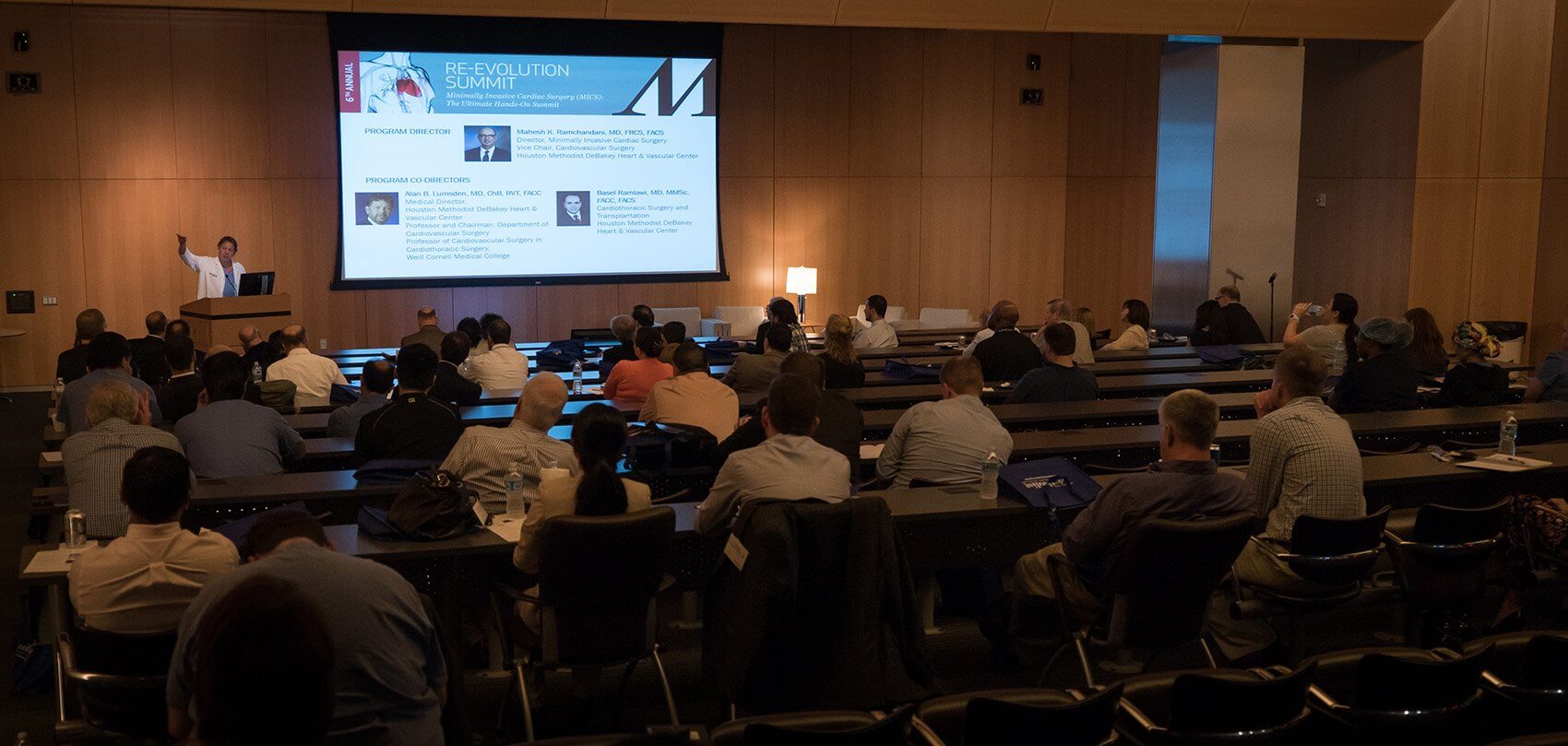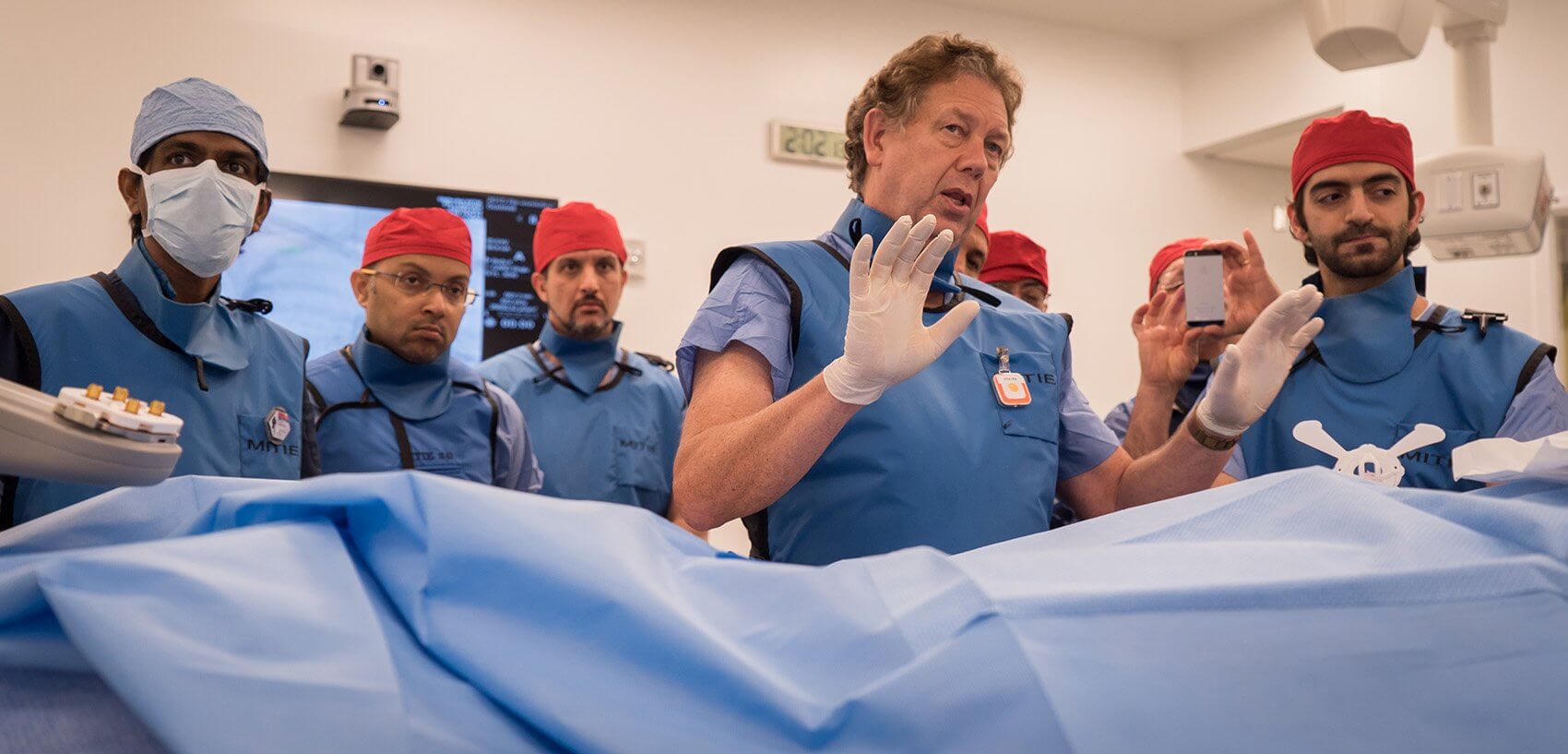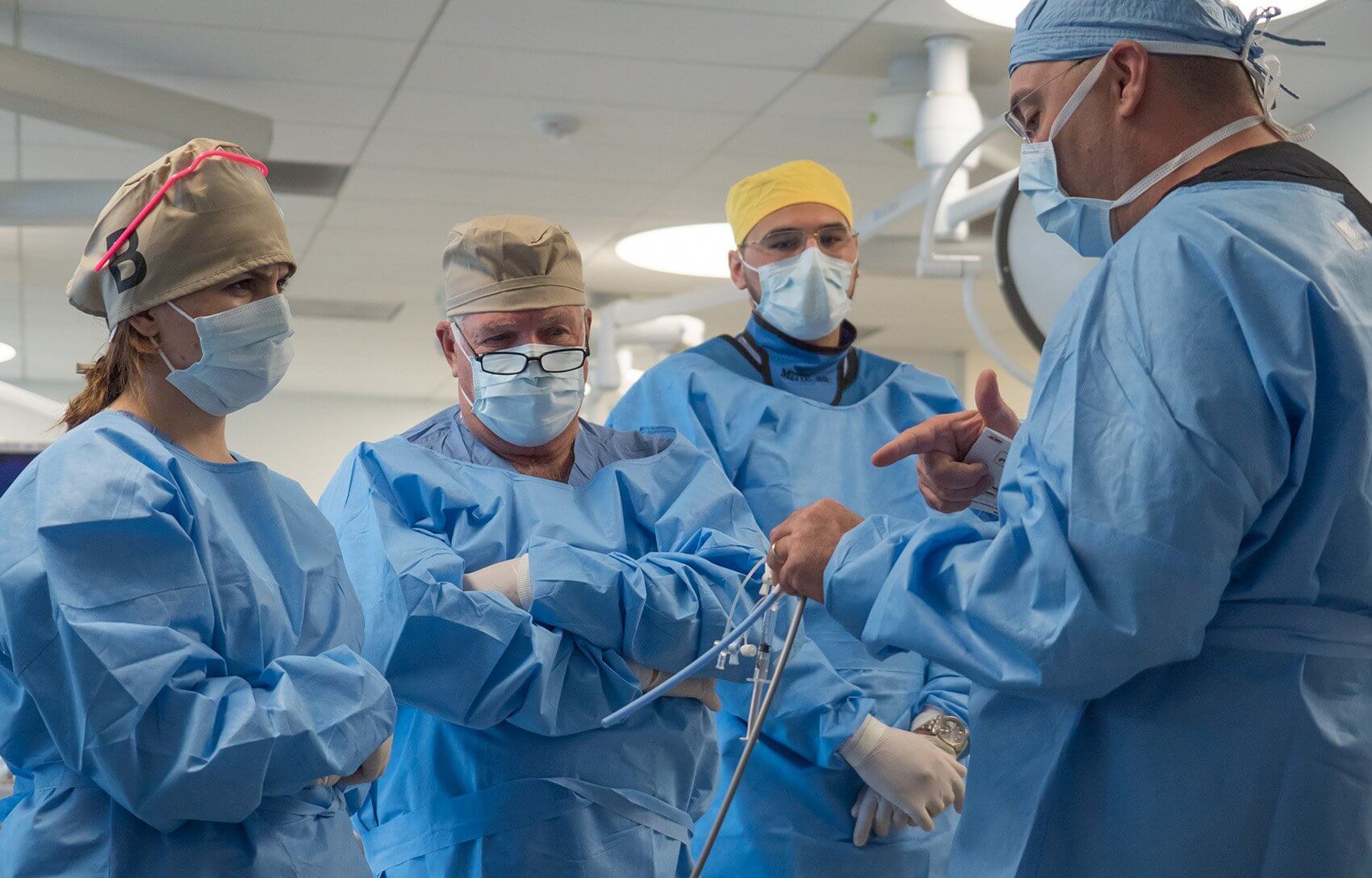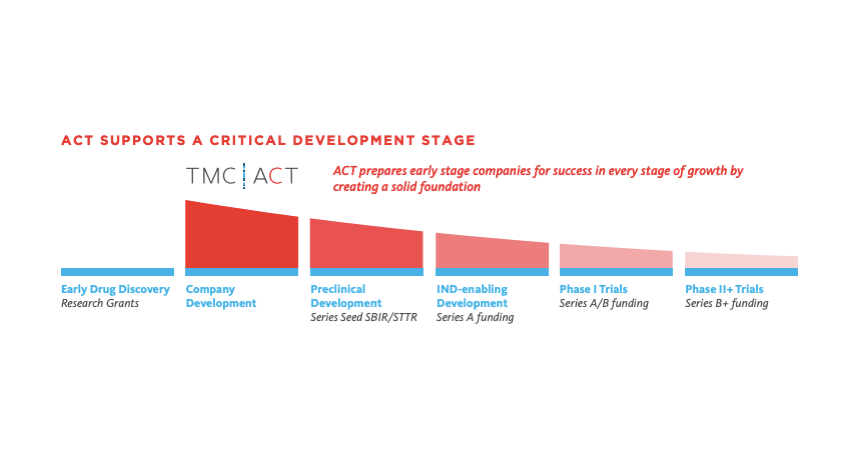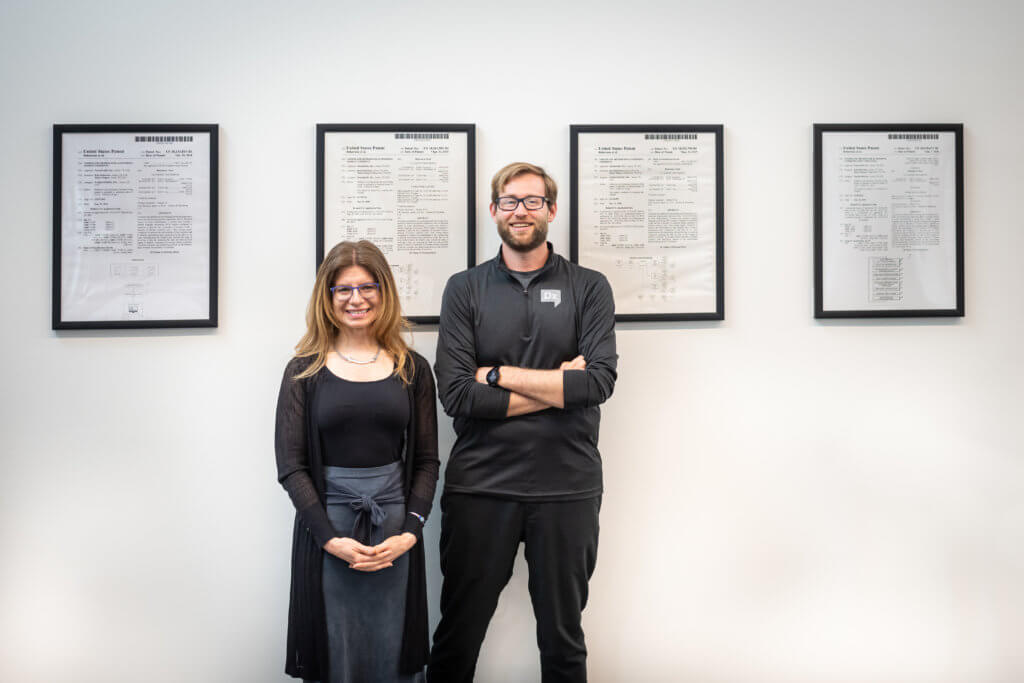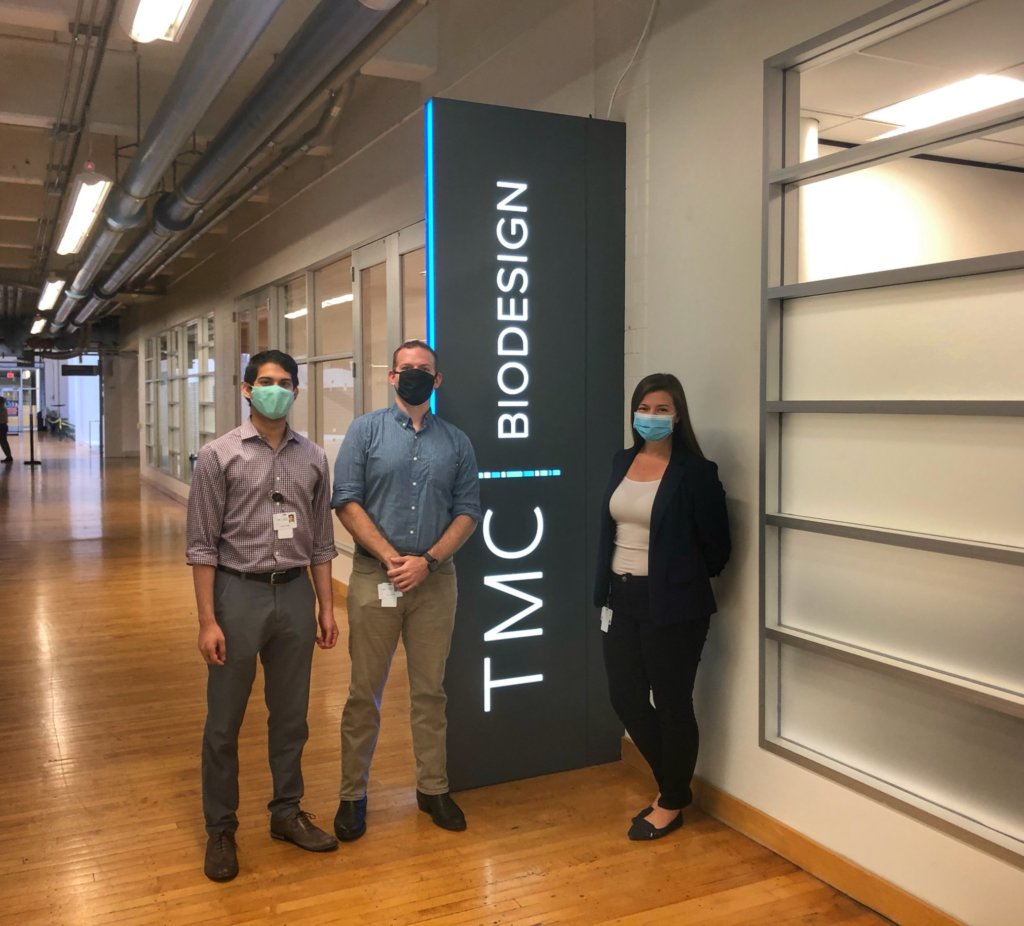Houston Methodist’s Re-Evolution Summit provides the ultimate hands-on experience in minimally invasive cardiac surgery
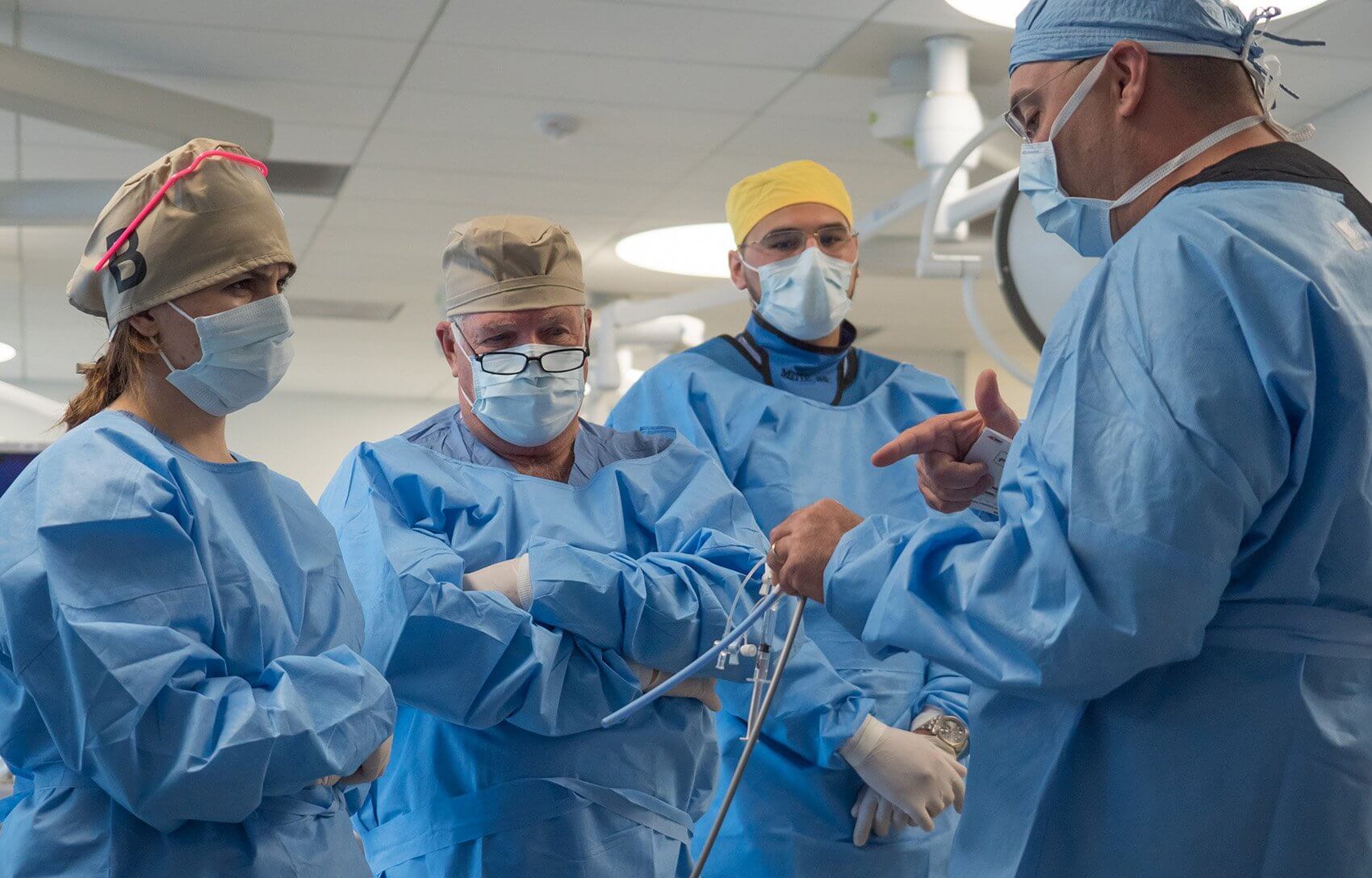
“Did everyone get a chance to play?” asks Joseph T. McGinn Jr., M.D., medical director of the Heart Institute at Staten Island University Hospital, with a twinkle in his eyes, the only part of his face visible above his surgical mask. Huddled around an operating table, a group of cardiac surgeons and physician assistants patiently wait for their opportunity to take the wheel. Carefully maneuvering imaging technologies and slender surgical instruments through small incisions, participants are peppered throughout the room at different stations—some containing cadavers, others featuring sophisticated beating heart platforms and even several with advanced mannequin simulators. Regardless of the procedure, or the platform, they all serve the same purpose: to expose practitioners to a wide array of techniques for performing minimally invasive cardiac surgery.
From Wednesday, May 13 to Friday, May 15, the 6th annual Re-Evolution Summit—hosted by the DeBakey Institute for Cardiovascular Education & Training (DICET), the educational arm of the Houston Methodist DeBakey Heart & Vascular Center, and held at the Houston Methodist Research Institute—brought together physicians from all across the country to explore emerging developments in minimal access cardiac surgery.
“Essentially, this summit is designed to teach people how to implement these techniques in a safe manner,” explained Mahesh K. Ramchandani, M.D., director of minimally invasive cardiac surgery at Houston Methodist Hospital and program director of the Re-Evolution Summit. “Teaching that involves many different things—lectures, didactic instructions, videos—but ultimately it’s about getting your hands-on experience and learning from doctors who are considered the best in the world at this.”
With morning sessions serving as a platform for evidence-based didactic lectures and afternoon workshops providing hands-on exposure under the watchful eye of expert mentors, Ramchandani is confident that training in these techniques can better serve patients and improve outcomes.
“Many of the opportunities for minimally invasive techniques are not even recognized by cardiac surgeons in practice today,” he admitted. “That’s a reflection of the fact that surgeons, and cardiac surgeons in particular, are really a conservative bunch—they don’t like to jeopardize their patients’ safety and will do whatever they feel is best for their patients.
“If they learned, properly, that they could do these procedures just as safely, I think the adoption rate would skyrocket,” he added. “What conferences like this accomplish is to propagate an awareness of what is possible to do and what is possible to do safely.”
In addition to a perfusion track with a focus on minimally invasive challenges and opportunities, specialized stations for physician assistants emphasized the integral role that the entire operating team plays in surgical procedures.
“This was implemented because of the recognition that this is really a team effort,” noted Ramchandani. “It’s not just about the surgeons. If one person on the team doesn’t function well, then you can’t do the procedure well or safely.”
Attendees at the conference learned to distinguish between open surgical techniques and minimally invasive procedures, applying some of the latest techniques for cardiac valve repair and coronary revascularization—all with an emphasis on hybrid approaches.
“This is a unique course, because in heart surgery, the opportunities to visit surgeons who are doing these procedures are somewhat limited,” clarified Daniel M. Bethencourt, M.D., a cardiac and thoracic surgeon from Long Beach, California. “This is a chance for surgeons to hear from people, experts in each of these techniques and procedures, and at the same time actually become hands-on and use the techniques on live-demonstration projects. The breadth of that is huge, and that kind of exposure doesn’t happen in almost any other situation.”
This year’s conference marks Bethencourt’s fourth appearance as a faculty member at Re-Evolution who alternates between teaching various aspects of minimally invasive surgery and learning from friends and colleagues. “There are two components that are really helpful here,” he emphasized. “One, you’re working with surgeons who have gone through multiple learning curves and are comfortable and enthusiastic about the things that they do and how they do them. Then there’s the chance to physically go through some of the motions. It’s really just a taste—not a comprehensive, full education, but it’s a great start.”
“I hope that the surgeons here are stimulated by the time they leave,” concluded Alan B. Lumsden, M.D., medical director of the Houston Methodist DeBakey Heart & Vascular Center, as well as program co-director of the Re-Evolution Summit. “What most people want is to take something away that they can introduce into their practice. We’re not just teaching obscure things here. Our job is to re-stimulate enthusiasm about the specialty and to give physicians a few tools to augment their practice so they can do things they haven’t otherwise been able to do.”

